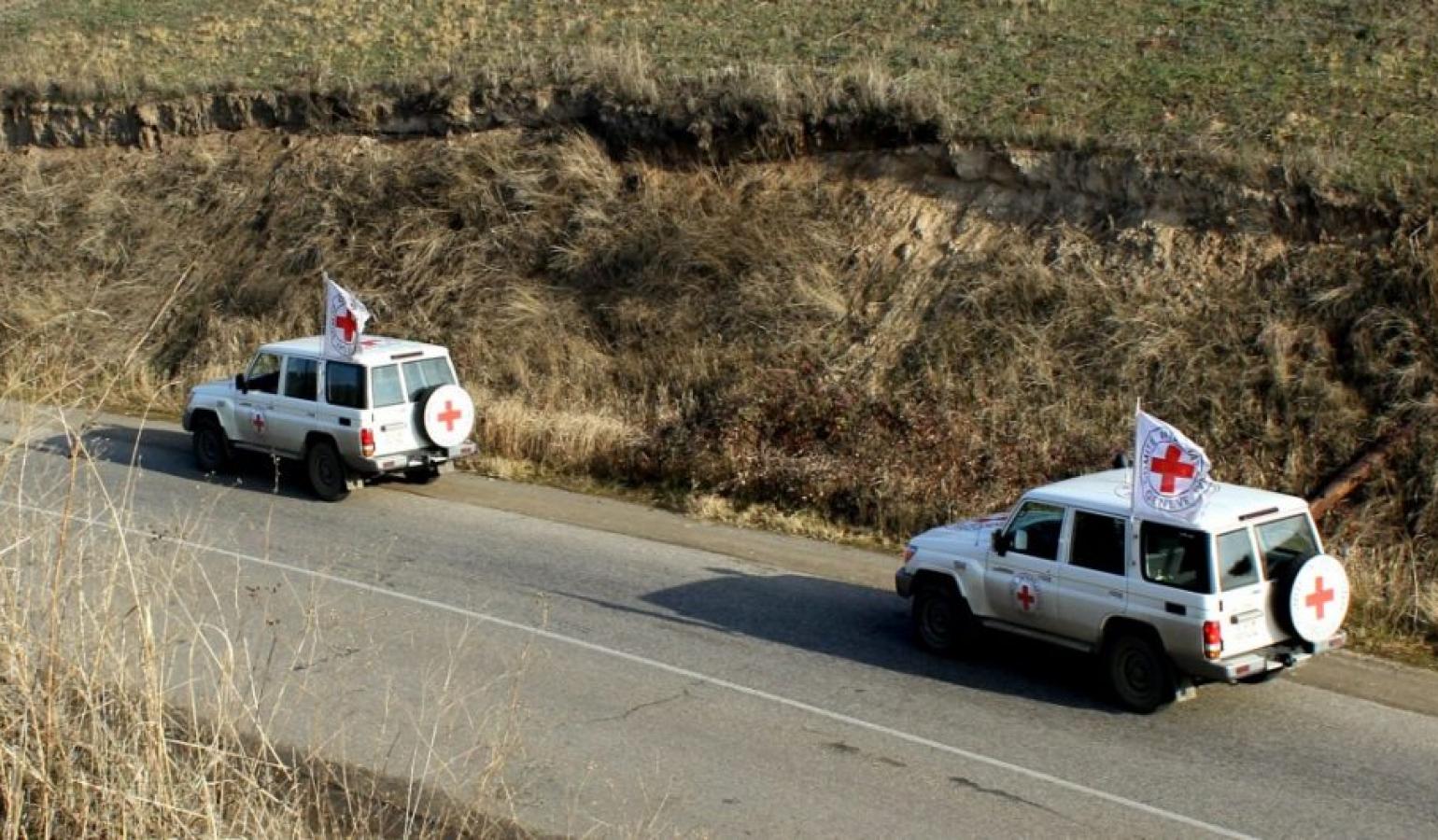
Representatives of the International Committee of the Red Cross (ICRC) last visited Armenian hostages and prisoners in Baku in June. At this final visit, the Committee's representatives announced that further visits would not be possible due to the cessation of their activities.
In a conversation with 168.am, Siranush Sahakyan, head of the “Center for International and Comparative Law,” emphasized that the closure of the office should not have affected the ability to conduct visits.
What awaits the Armenian hostages and prisoners held in Baku after the closure of the ICRC office? Who will visit them and provide information on their condition and health? “Various countries have separate agreements with the Red Cross, which allow other regional offices to carry out visits. It seems that representatives of the executive branch have also commented on this, noting that visits from other regional offices are not entirely ruled out. However, given the current dynamics, it’s clear that Azerbaijan is acting in bad faith. First, by not extending the office's activities, and second, by showing no intention of granting access to representatives from other countries. This suggests an intentional effort to keep the Armenians in complete isolation,” said Siranush Sahakyan. She added that this isolation is not an end in itself; absolute isolation is necessary for Azerbaijani authorities because they are committing systematic acts of torture and are attempting to cover them up. The fact that these individuals are cut off entirely from the outside world in itself points to the risk of torture and the intent to conceal it.
Under conditions of absolute isolation, Azerbaijan is not working to ensure the presence of other organizations with a similar mandate. Instead, it is trying to introduce a seemingly substitute, imaginary mechanism to fill that void. Human rights defender Siranush Sahakyan noted that they recently learned of a visit by a so-called anti-torture committee to the Armenian hostages. “This is not an international committee. They deliberately use a similar name to suggest that mechanisms to prevent torture are in place and functioning. But in reality, this is not an internationally recognized or independent body; it is a structure created and operated within Azerbaijan, designed to create the illusion that a replacement for the Red Cross has been established.” She continued: “Without true independence, such a body cannot effectively combat torture. Even Azerbaijan’s own Human Rights Defender institution, despite its long-standing existence and involvement in international processes, cannot convince the international community that it operates independently. In this context, the idea that this new mechanism could replace the International Committee of the Red Cross is simply absurd.”
In Sahakyan's view, the most realistic solution at this stage is a visit by a consular officer from a third country, delegated by Armenia. She noted that the Armenian government is aware of this option and that a public request has already been submitted to the Armenian Foreign Ministry. However, there has been no confirmation that the Ministry has either approached a neutral country with such a request or that such a request was denied. “Consequently, we believe the Armenian authorities have not taken the necessary steps to prevent the isolation of the hostages held in Baku, nor have they acted to support them by delegating the right to consular visits,” Sahakyan stated.
Regarding expectations for international human rights organizations, Sahakyan noted that while there are positive expectations of their involvement, their ability to act is limited by the Azerbaijani authorities. In order to physically enter Azerbaijan and access closed institutions with strict regulations, these organizations must first obtain official authorization from state bodies.
“For example, there is the European Committee for the Prevention of Torture, various subcommittees, and the UN Special Rapporteur on Torture. But all of these bodies can only carry out their work in Baku with the permission of the Azerbaijani authorities,” said Siranush Sahakyan. “We have known since a public statement last year that Azerbaijan has been restricting the anti-torture committee’s activities, creating obstacles, and that the available channels for cooperation have been exhausted. These bodies do at least maintain communication with Azerbaijan and have planned visits, including one to Baku. However, there is no information confirming that such a visit has actually taken place. In the absence of official confirmation, we can reasonably conclude that Azerbaijan has not granted permission.” She added that in other situations, rights protections based on complaints may be pursued through courts or quasi-judicial bodies. However, these institutions are not responsible for conducting visits or on-site monitoring. Rather, they are tribunals that adjudicate rights violations based on available evidence.
“Processes in this regard exist and will continue, but the most urgent issue right now is ensuring proper monitoring of the situation, as this is key to mitigating the real threats to the lives of the Armenian hostages,” said Siranush Sahakyan. “I would also like to note that, under the court’s decision on urgent measures, the Azerbaijani government is obligated to provide information regarding the health, detention conditions, and overall treatment of the Armenian hostages. Azerbaijan attempted to have these measures annulled, but the court, after considering the Armenian side’s arguments, rejected the request. As a result, the interim measures remain in effect, and Azerbaijan is required to submit reports. The deadline for doing so is in July.”
“We expect that some information will be provided, which will help us better understand the situation. But I want to emphasize again that without direct visits, this information alone is not
enough to protect against life-threatening dangers, especially since Azerbaijan has frequently submitted false documents. It is essential to confirm through direct contact whether the Armenians are alive and to assess their physical and psychological condition,” emphasized Siranush Sahakyan.